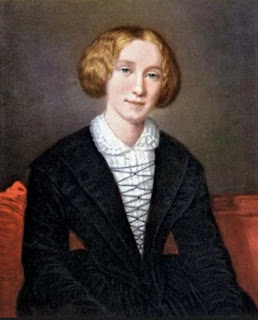George Eliot
George Eliot
George Eliot, the pen name of Mary Ann Evans, was a prominent English novelist of the Victorian era, known for her rich characterizations and exploration of social and moral issues. Born on November 22, 1819, in Warwickshire, England, Eliot initially worked as an assistant editor at the Westminster Review, where she honed her skills as a writer and thinker. Despite the societal constraints of her time, she adopted a male pseudonym to ensure her work was taken seriously.
Her novels, including "Adam Bede," "Middlemarch," and "Silas Marner," are celebrated for their realism and insightful depiction of rural life and human complexities. Eliot's writing delves into themes of personal growth, social responsibility, and the intersection of individual and community needs. Her ability to weave philosophical and psychological depth into her narratives has earned her a lasting place in literary history as one of the greatest novelists of the 19th century.
Silas Marner
"Silas Marner," written by George Eliot, is a novel set in the early 19th century in the fictional village of Raveloe. It tells the story of Silas Marner, a reclusive weaver who lives a lonely life after being wrongly accused of theft and excommunicated from his religious community. He moves to Raveloe to escape his past and becomes known for his introverted nature and dedication to his work.
Silas's life changes dramatically when his gold, which he hoarded obsessively, is stolen by Dunstan Cass, the reckless younger son of the local squire. Devastated by the loss, Silas becomes even more isolated. However, one winter night, a toddler named Eppie wanders into his home. Her mother, an opium-addicted woman, dies nearby, and Silas decides to adopt the child. Her presence brings warmth and purpose back into his life.
As Eppie grows, she becomes the center of Silas's world, transforming him and bringing him closer to the community. Years later, the truth about the theft of Silas's gold is revealed, and Eppie's biological father, Godfrey Cass (Dunstan’s brother), comes forward but she chooses to stay with Silas.
The novel explores themes of redemption, the impact of community, and the transformative power of love. Through Silas's journey from isolation to acceptance, Eliot presents a profound narrative about the possibilities of personal and social renewal.
Quiz
1. What is the real name of the author known by the pen name George Eliot?
- a) Emily Brontë
- b) Louisa May Alcott
- c) Mary Ann Evans
2. In which fictional village is "Silas Marner" set?
- a) Raveloe
- b) Middlemarch
- c) Hayslope
3. Why does Silas Marner live a reclusive life in Raveloe?
- a) He was wrongly accused of theft and excommunicated from his previous community.
- b) He prefers solitude to work on his inventions.
- c) He is hiding from law enforcement.
4. What does Dunstan Cass steal from Silas Marner?
- a) A child
- b) Jewelry
- c) Gold
5. Who is Eppie and how does she change Silas's life?
- a) A woman Silas marries, bringing wealth to his life
- b) A child he adopts, bringing warmth and purpose to his life
- c) His long-lost sister who reconnects him with his family
6. What themes are explored in the novel "Silas Marner"?
- a) Adventure and heroism
- b) War and peace
- c) Redemption, community impact, and the power of love
7. What occupation did George Eliot hold before becoming a novelist?
- a) Schoolteacher
- b) Assistant editor
- c) Painter
8. How does Eppie respond when her biological father reveals his identity?
- a) She stays with Silas Marner.
- b) She chooses to live with him.
- c) She decides to leave for the city.
9. Why did George Eliot choose a male pen name?
- a) She liked the name George.
- b) To ensure her work was taken seriously.
- c) It was suggested by her publisher.
10. Which of the following is NOT a novel written by George Eliot?
- a) "Middlemarch"
- b) "Silas Marner"
- c) "Wuthering Heights"





Comments
Post a Comment
Alıştırmalarla ilgili cevaplarınızı, soru ve isteklerinizi yorum kutusuna yazabilirsiniz.